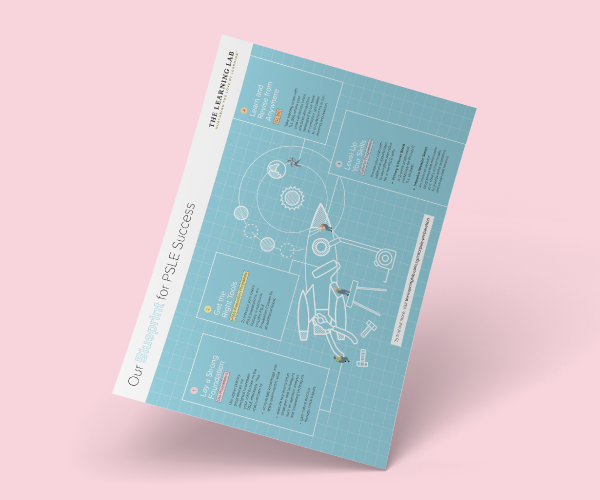
With the beginning of the second semester and third term of the school year, Primary 6 students are entering the crunch period of PSLE preparation. If your child is taking the PSLE this year, this is the crucial stretch when he or she will be studying the hardest and under the highest amount of stress. At the same time, this is also when your child will most need parental - your - support. There are a variety of ways through which you can offer much-needed support and help your child be in the best possible physical and emotional state for the biggest examinations of his or her life to date. From exercise and diet to simply allowing your child to relax, this article examines how you and your child can tackle preparing for the PSLE together while improving performance and taking care of your emotional wellbeing.

Managing Stress
Feeling some stress in life is unavoidable and at times even beneficial because experiences that challenge us also help us grow. However, remaining stressed for a long period, which can happen with children preparing for major examinations like the PSLE, can have many pernicious effects. For example, being under constant stress can result in physical ailments such as headaches and reduced appetite. Other tell-tale signs include complaints of always feeling tired and an inability to focus owing to needless worrying or burnout.
A stressed and tired child is more likely to procrastinate and put off studying. Adequate and regular rest is thus crucial for your child’s long-haul preparation, and you will want to make sure regular study breaks throughout the school day are part of your child’s study schedule. In addition to these breaks, you may also want to mindfully set aside a weekend morning or afternoon during the lead-up to the PSLE for your child to relax. Let your child engage in his or her favourite activities, or change up the environment by bringing them out of the house into the outdoors for physical activity such as a walk or sports (more on this later).
It is also just as important that you avoid putting unnecessary pressure on your child during this period by comparing him or her to others in their class or among your friends’ children. With the first exams (the oral exams) just about a month away, your child will be better served by focusing on what he or she can do rather than worry about catching up to others.

Managing Diet and Physical Activity
But the PSLE isn’t just about the mind. As the body goes, so does the mind, and your child’s physical condition ahead of the exams is very much worth monitoring. One tip is to, firstly, dial down on your child’s sugar intake, as sugar-loaded foods can drain his or her energy after giving the initial boost. Ensure that he or she makes a habit of drinking plenty of water every day, instead of relying on caffeinated drinks (such as milk tea, as teenagers are recommended not to consume more than 100ml of caffeine daily) or sugary drinks to get through the school day.
Should your child wish to snack, avoid the processed options loaded with sugar and look to nuts, berries, or fruits such as bananas for alternatives.
Secondly, encourage your child to complement the mental effort he or she is expending for PSLE preparation with physical activity. Research has shown that regular exercise helps improve cognitive ability and mood for all ages, and this is true even of light exercise such as slow walks. An active lifestyle also helps students sleep better at night, as opposed to tossing and turning in bed fretting about whether one has gotten one’s facts all memorised.

Managing Your Own Mental State
As your child gears up for the important milestone that is the PSLE, it is only natural that you will feel stressed as well. Join your child in taking a break or a breather and have some fun together. Find someone to talk to about any concerns and anxieties you may have rather than bottling these up or, even worse, letting your child inadvertently pick up on your worries. Remember that a large part of academic performance comes down to a child’s mental state, and a supportive home environment can make a crucial difference in motivating children to do their best while being unafraid of failure.
The Learning Lab is now at locations. Find a location that suits your needs.
If you have any questions about our range of programmes or class schedules, you may contact us at 6733 8711 or drop us an email at enquiry@thelearninglab.com.sg.

Providing the Blueprint for Your Child’s Success in the PSLE
Parents are an important pillar of support for every child, and are especially needed when children are faced with monumental undertakings such as the PSLE. With the right guidance and resources, your child can achieve his or her desired academic goals.
The Learning Lab is now at locations. Find a location that suits your needs.
If you have any questions about our range of programmes or class schedules, you may fill in the form below or contact us at 67338711 or at enquiry@thelearninglab.com.sg.


